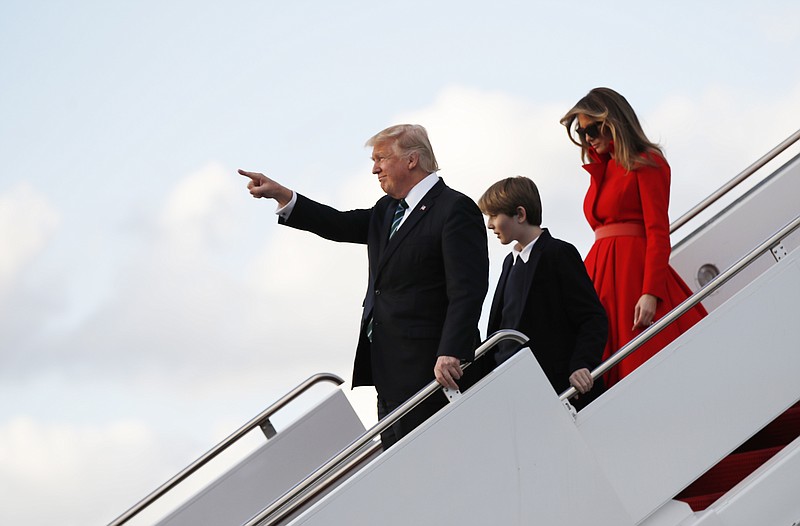WASHINGTON (AP) - The Justice Department has given the House intelligence committee information it requested about President Donald Trump's bold but unsubstantiated claim of being wiretapped during the presidential election, but the committee chairman won't say what was received.
Rep. Devin Nunes, R-Calif., declined to disclose details, saying only that the Justice Department had "fully complied" with the committee's request.
The Justice Department sent the information in advance of FBI Director James Comey's testimony Monday at a committee hearing being held in conjunction with its investigation into Russian activities during the presidential election.
In a statement, Nunes said the committee still had not received information it requested from the FBI and CIA about whether information collected on U.S. persons was mishandled and leaked to the public. He said the National Security Agency had provided some information and expects to fully meet the committee's request by the end of next week.
The ranking Democrat on the committee, Rep. Adam Schiff of California, declined to comment Friday evening.
The leaders of the House intelligence committee wrote the three agencies earlier this week, asking for details about Americans who surfaced in intelligence collections between June 2016 and January. The committee wanted to know how many conversations involving a U.S. person were swept up, whether their identities were unmasked and whether legal requirements for disseminating their identities were followed.
Identities of Americans who show up in U.S. surveillance against foreign targets are generally concealed, but can be unmasked by intelligence agencies in certain circumstances. Those include situations when the communications contain information that a crime has been or is about to be committed; when the Americans' identity is necessary to understand the importance of the foreign intelligence collected; or when the communication provides information that an American may be an agent of a foreign power.
Also Friday, the Senate intelligence committee announced a March 30 hearing in connection to its investigation into Russian activities during last year's presidential election. A first panel of witnesses will examine the history of Russian influence campaigns and a second panel will address how Russia uses cyber operations to support the activities.
Former intelligence officials and others from business and academia are scheduled to testify.
The committee earlier held an open hearing in January on the Russian activities in the 2016 election.
